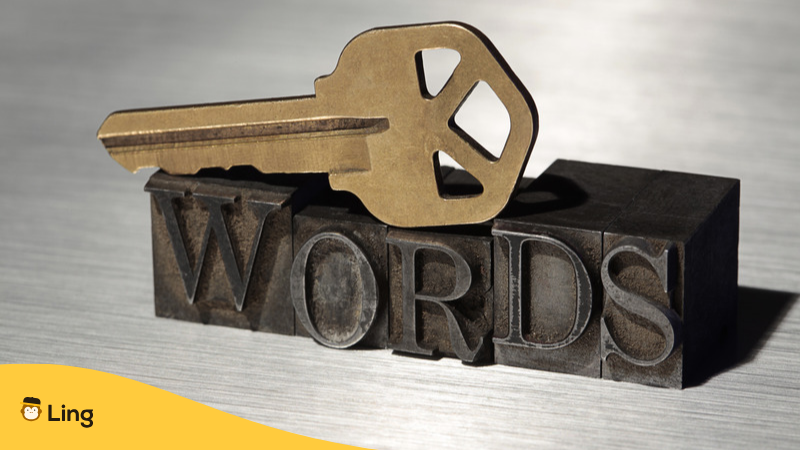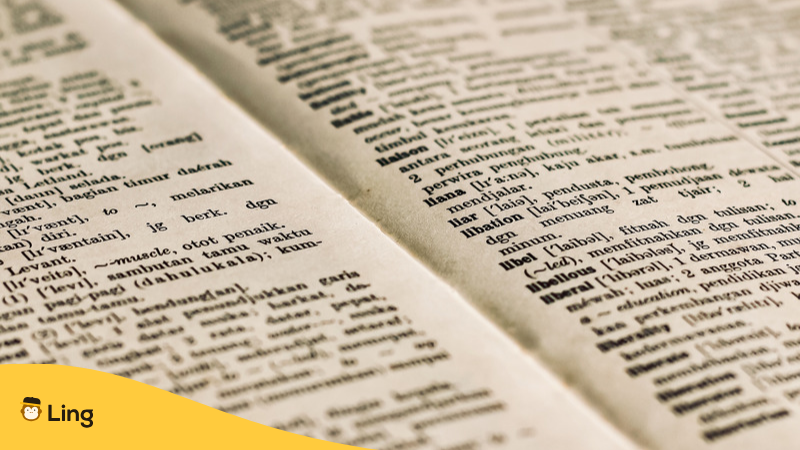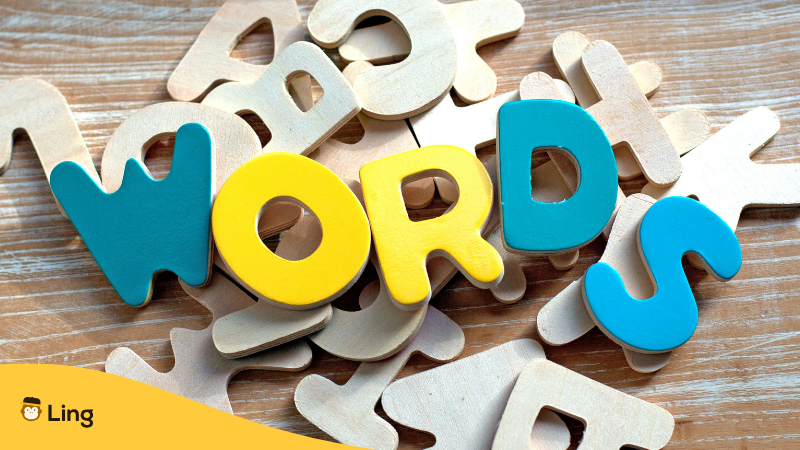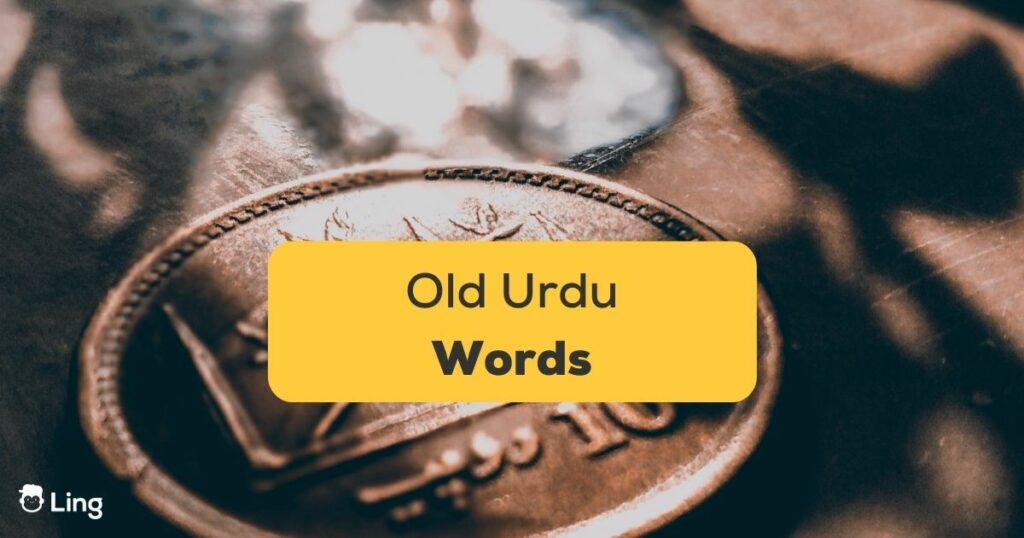The beautiful Urdu language is a treasure trove of words that have been passed down from generations past, especially in Urdu poetry. It is an Indo-Aryan language that has evolved over centuries, borrowing from various other languages and incorporating new vocabulary as time marches on. However, as new words are added, some of the old ones have faded into obscurity.
In this article, we shall delve into the concept of Old yet beautiful Urdu words, their definition, examples, and their significance. Old Urdu words refer to the charming and rare words and phrases that were once commonly used in Urdu but have since fallen out of common usage. These archaic, rare, or even obsolete words have lost their prominence due to the changing times, influences from other languages, and modernization.
Old Urdu Words
Old Urdu words have significant cultural and historical significance. They provide a window into the past and offer a glimpse into the language and culture of earlier times. They connect us with the rich heritage of the Urdu language, music, and literature, providing a link between the present and the past. Moreover, Old Urdu words have a unique charm and elegance that modern words lack, adding depth and richness to the language.
Old Urdu words are a testament to the evolution of the language over time, and their preservation is crucial for the promotion and conservation of the Urdu language and culture. These words are a treasure trove that should be celebrated and cherished, adding a touch of magic and mystique to the language. Let us not forget the beauty and elegance of these Old Urdu words as we move forward into the future.

Examples
طالِبانہ (talibana) – Meaning student-like or scholarly
This word is derived from the word “talib” which means a student or learner. “Talibana” refers to someone that is characterized by being like a student or a scholar. It is often used in conversation to describe someone who is eager to learn or is in the process of acquiring knowledge.
سہمی (sehmi) – Meaning anxious or nervous
“Sehmi” is an Urdu word used to describe someone who is anxious, nervous, or uneasy. It can be used to describe someone who is hesitant or uncertain about something. It is derived from the word “sahm” which means fear or apprehension. It can also be used to describe someone who has a doubt or is unsure about something.
گلخنی (gulkhani) – Meaning an ornamental arch of flowers
“Gulkhani” is an Urdu word that refers to an ornamental arch made of flowers. It is often used to describe a decorative arch or gateway that is made of flowers or plants. The word is derived from “gul” which means flower, and “khani” which means an arch or a niche.
جوشِ ناشناس (josh-e-nashnas) – Meaning uncontrollable passion or enthusiasm
“Josh-e-nashnas” is an Urdu word used to describe an intense and uncontrollable passion or enthusiasm for something. It is often used to describe a feeling of fervor or zeal for a particular cause or activity. The word “josh” means passion, and “nashnas” means someone who is familiar with or acquainted with something.
خلائی (khalaai) – Meaning empty or vacuous
“Khalaai” is an Urdu word that means empty or vacuous. It can be used to describe a place or a thing that is devoid of any substance or value. It is derived from the word “khala” which means empty or vacant.
فقیری (faqiri) – Meaning poor or destitute
“Faqiri” is an Urdu word used to describe someone who is poor or destitute. It is often used to describe someone who is in a state of poverty and lacks basic resources. The word is derived from “faqir” which means poor or needy.
چرمی (charmi) – Meaning made of leather
“Charmi” is an Urdu word that refers to something that is made of leather. It is often used to describe leather goods such as shoes, bags, or jackets. The word is derived from “charma” which means leather.
قاعِدہ (qaaida) – Meaning a rule or principle
“Qaaida” is an Urdu word used to describe a rule or a principle. It can be used to describe a set of guidelines or principles that govern a particular process or activity. The word is derived from “qaaida” which means to set or establish a rule.
خواجہ (khawaja) – Meaning a title for a respected person or a master
“Khawaja” is an Urdu word that refers to a title for a respected person or a master. It is often used to describe someone who is highly respected or revered in their field. The word is derived from “khwaja” which means a master or lord.
غمگین (ghamgeen) – Meaning sad or melancholic
“Ghamgeen” is an Urdu word used to describe someone who is sad or melancholic. It can be used to describe a feeling of sorrow or grief.

Preserving Old Urdu Words
Urdu language, with its lyrical and poetic charm, has been the pride of South Asia for centuries. The language is rich in history, poetry, culture, and tradition, but with time, some of its old words have faded away. However, efforts to preserve Old Urdu words are underway, and various institutions are coming forward to ensure that the language’s heritage remains intact.
Urdu language societies are playing a significant role in preserving Old Urdu words. They are the custodians of the language and work tirelessly to promote it. These societies organize various events, seminars, and workshops to create awareness about the language and learn Urdu’s history and culture. They are also cataloging old Urdu words and creating databases that are accessible to researchers and scholars.
The Urdu language media has also joined the efforts to preserve old Urdu words. Urdu language newspapers and magazines publish articles on these words, their meanings, and their importance in Urdu literature. Television channels also air programs dedicated to the Urdu language and culture, which feature discussions on old Urdu words, their meanings, pronunciation, and their relevance.
Educational institutions are also contributing to the preservation of old Urdu words. They have a responsibility to ensure that students are well-versed in the language’s rich heritage and culture. Many of these institutions offer Urdu language courses and have started initiatives to document and catalog old Urdu words.
It is essential to preserve old Urdu words, as they are an integral part of the language’s history and culture. These words have been used by great poets and writers in their works, and losing them would be losing a part of our heritage. By coming together and taking active steps to document and catalog these words, we can ensure that the Urdu language and culture continue to thrive for generations to come.

Speak Urdu Like A Pro
That’s it for this blog post. Learn to speak Urdu like a pro today with Ling. On the app, you can find countless easy ways to speak like a native Urdu speaker.
What are you waiting for? Download the Ling App from the Google Play Store and App Store and start learning Urdu now!
If you want to learn more, check out our body parts in Urdu and family-related vocabulary articles here on the blog.



































































